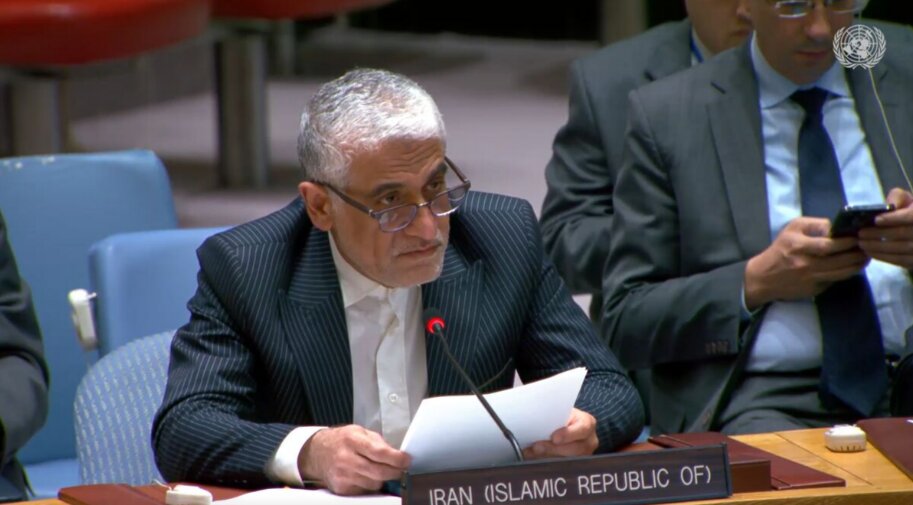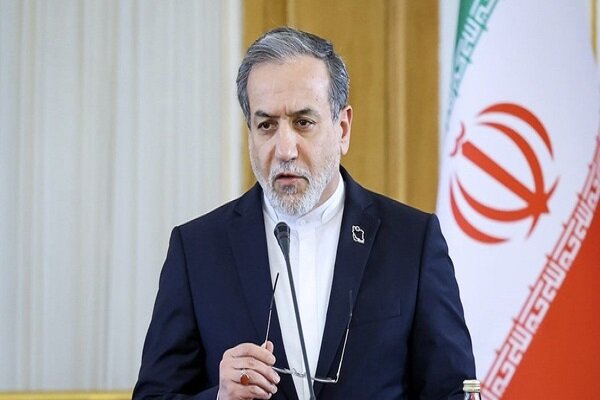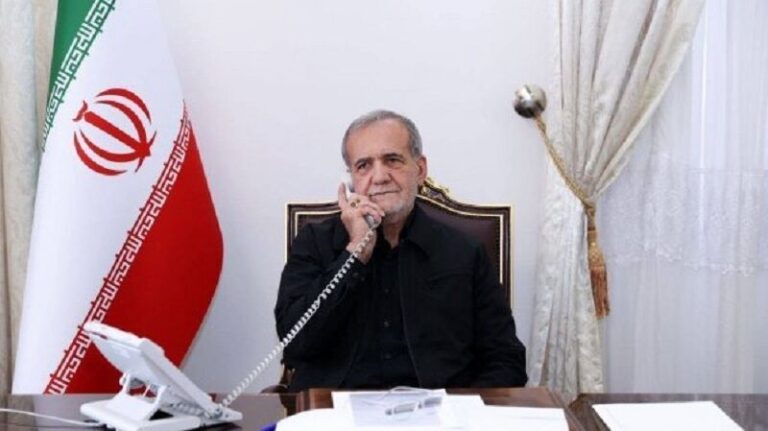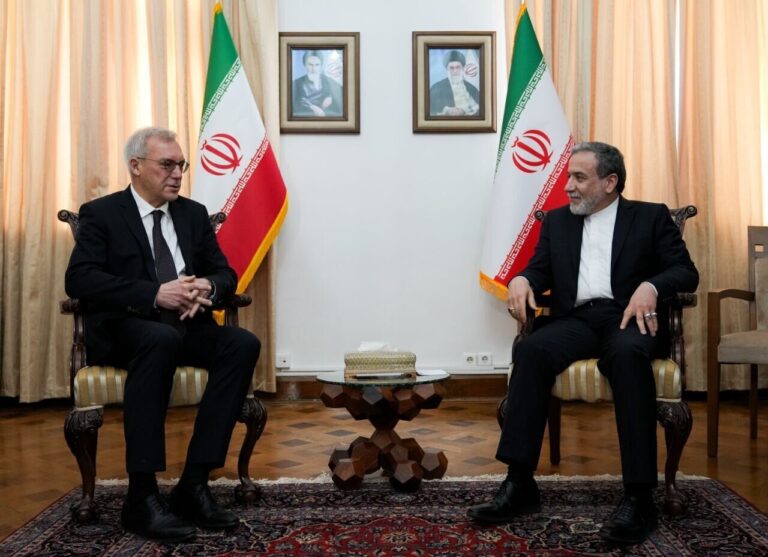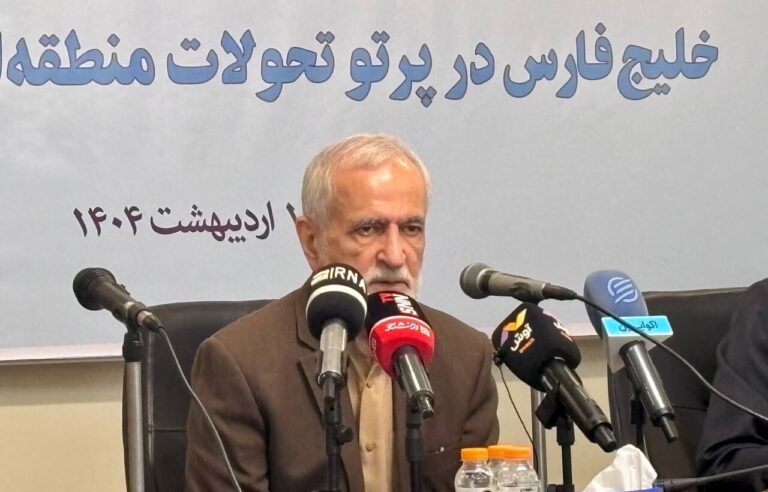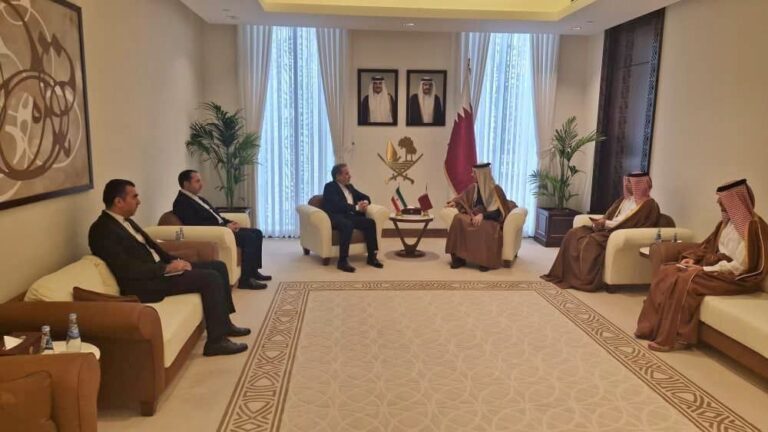Iran Slams Trump’s Aggressive Threats: A Battle of Words Escalates
In a recent development, Iran’s permanent ambassador to the United Nations, Amir Saeid Iravani, has voiced significant concerns regarding remarks made by former U.S. President Donald Trump. These comments, deemed inflammatory and reckless, have raised alarms about international law and the potential implications for peace between the two nations.
According to a letter addressed to the UN chief and the president of the Security Council, Iravani emphasized the gravity of Trump’s statements, which he interpreted as threats against the Islamic Republic of Iran. Iravani’s assertions highlight the delicate nature of international relations and the legal frameworks that govern them.
During a media interview with the New York Post, Trump mentioned, “I would like a deal done with Iran on non-nuclear. I would prefer that to bomb the hell out of it. They don’t want to die. Nobody wants to die.” This statement was part of a wider discourse wherein Trump expressed a desire for negotiations rather than military action.
However, in a subsequent interview with Fox News, Trump reiterated his stance, stating, “I would like to make a deal without bombing them.” This approach has been met with criticism from Iranian officials, particularly concerning the potential consequences of such rhetoric.
Iravani firmly stated that Trump’s comments “flagrantly violate international law and the UN Charter, particularly Article 2(4), which prohibits threats or use of force against sovereign states.” This assertion underscores Iran’s position on the legitimacy of its sovereignty and the need for respectful diplomatic engagement.
Furthermore, Iravani condemned Trump’s “maximum pressure” policy as a blatant violation of international norms. He described this policy, which was outlined in the National Security Presidential Memorandum (NSPM) of February 4, 2025, as one that reinforces unlawful coercive measures against Iran. Iravani stated, “Such provocation is further compounded by the so-called ‘maximum pressure’ policy, which escalates hostility against Iran.”
In light of these developments, Iravani urged the Security Council to take a stand and not remain silent against what he termed “brazen rhetoric.” He expressed, “The Islamic Republic of Iran firmly rejects and condemns this reckless threat. The UN Security Council must not remain silent in the face of such brazen rhetoric, as normalizing the threat to use force sets a dangerous precedent and must be unequivocally condemned.”
He also issued a warning regarding the potential repercussions of any aggressive actions against Iran. Iravani emphasized, “The Islamic Republic of Iran warns that any act of aggression will have severe consequences, for which the US will bear full responsibility.” This statement reflects Iran’s commitment to defending its sovereignty, territorial integrity, and national interests.
In the backdrop of Trump’s threats, it was noted that he had recently signed an order aimed at reducing Iran’s oil exports to zero. This move aligns with the broader sanctions that were re-imposed after the United States withdrew from the 2015 Joint Comprehensive Plan of Action (JCPOA) in 2018. The juxtaposition of Trump’s threats with his claims of wanting to negotiate a nuclear deal has drawn scrutiny from Iranian officials.
Iranian President Masoud Pezeshkian also responded to Trump’s statements, asserting that while Iran does not seek war, it will not succumb to foreign pressure. He criticized the contradictory nature of Trump’s approach, stating, “Trump says let’s have a dialogue, and then … he signs and announces all possible conspiracies to bring the [Islamic] Revolution to its knees.”
In conclusion, the ongoing exchange between the United States and Iran highlights the complexities of international diplomacy and the importance of adhering to established legal norms. As tensions continue to simmer, the international community watches closely, hoping for a resolution that prioritizes peace and stability.
- Key Points from Iravani’s Letter:
- The remarks by Trump are a violation of international law.
- Trump’s “maximum pressure” policy is seen as coercive and illegal.
- The UN Security Council must respond to the threats made against Iran.
- Iran will defend its sovereignty and interests against aggression.
This situation remains fluid, and any further developments will likely impact diplomatic relations and international peace efforts.
